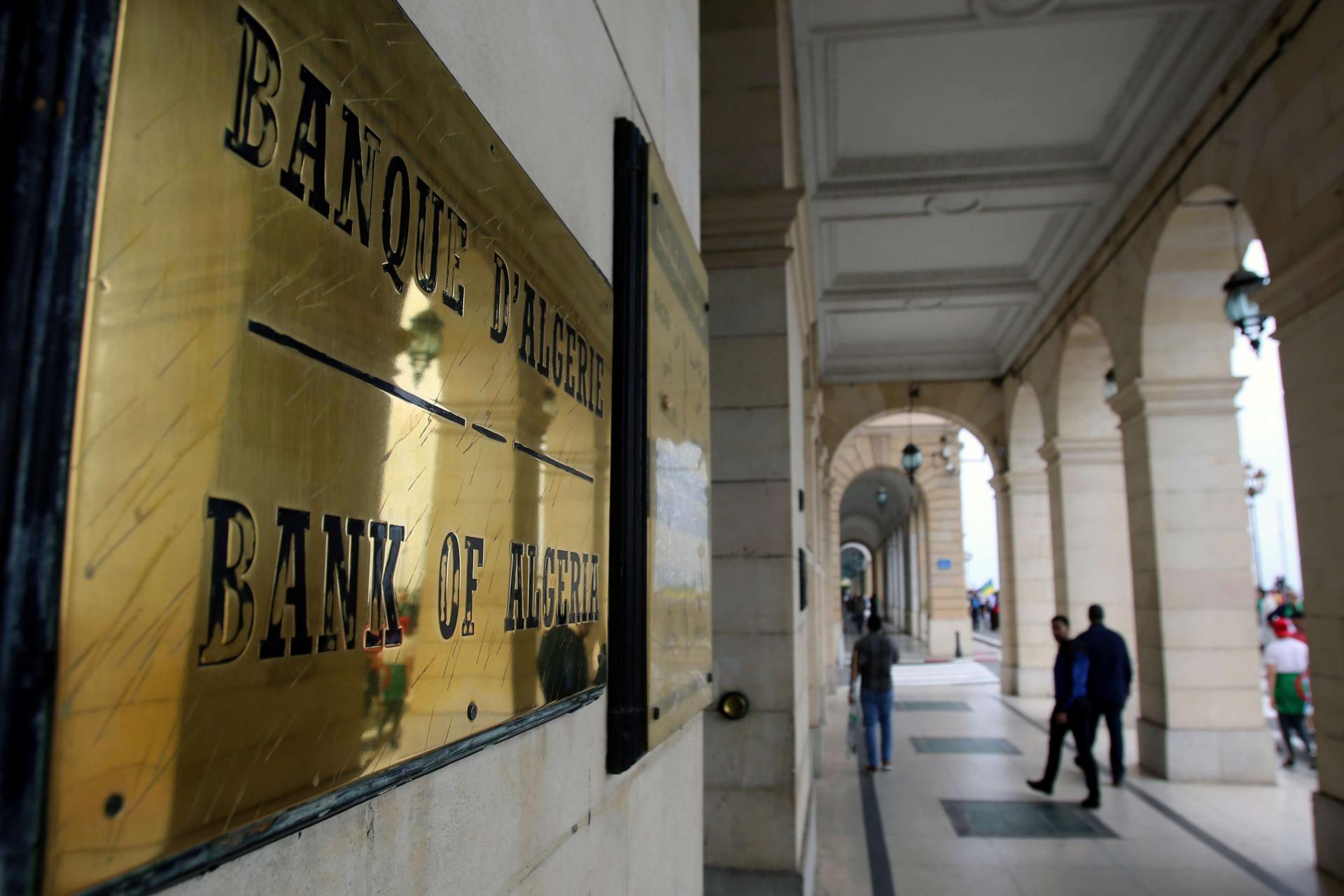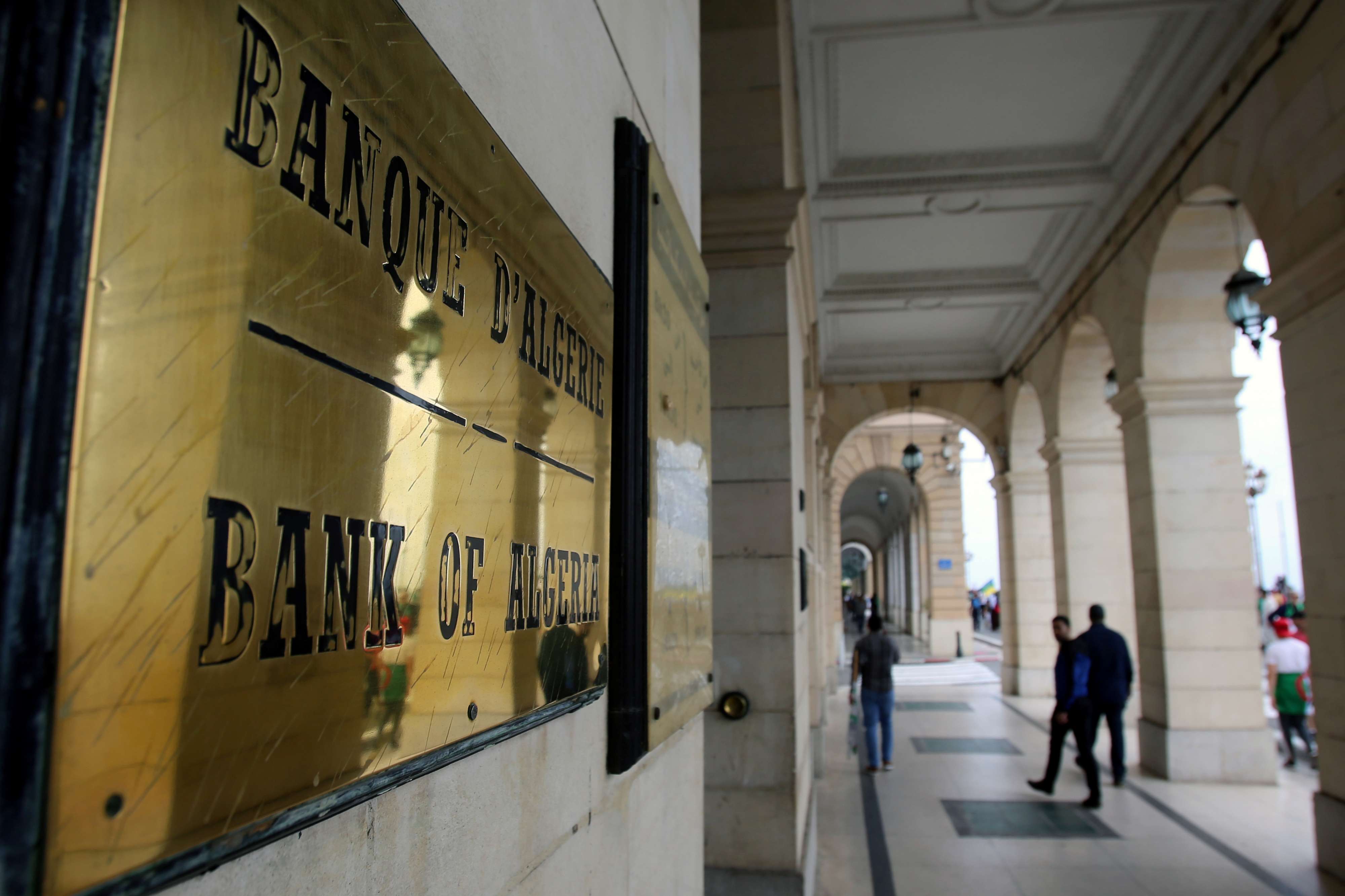Algeria to borrow from abroad for first time in 15 years
TUNIS - The Algerian government is turning to foreign lenders for the first time in 15 years as oil and gas output declines and takes a toll on the economy.
Algerian Finance Minister Mohamed Loukal, speaking after Algeria’s cabinet adopted measures for the draft 2020 budget, said the country would seek “long-term loans that will be allocated only to finance strategic projects.”
Algeria had banned any foreign debt since 2005, when the government began emphasising "economic nationalism" and "financial sovereignty."
Loukal said Algeria would not seek loans from the international market until early 2021 when the country’s foreign reserves are expected to hit the lowest level in many years. Algeria's international reserves have shrunk by more than half since their peak in 2014, with officials projecting the stockpile to total $68 billion by the end of 2019.
Oil and gas revenues account for more than 95% of total exports and around 60% of the Algerian budget. The country needs crude oil prices of nearly $100 a barrel to balance its budget in 2019. It priced its Sahara Blend for October at around $62 a barrel.
The International Monetary Fund advised Algerian authorities to cautiously devalue the country’s currency, the dinar, to borrow from abroad and open its economy to more international investment to address widening economic imbalances.
The collapse of oil prices in 2014 left Algeria, Europe's third-largest supplier of gas, struggling to sustain the most generous subsidy system in the Maghreb.
As a result, Algeria’s budget deficit widened to around 16% of GDP since 2015 and its current account showed a double-digit gap in the past three years, eating away at foreign reserves.
Algerian authorities moved to gradually open the economy to foreign investment and trim the budget deficit this year.
The move comes as protests continue in Algeria. Demonstrators have demanded a complete overhaul of a regime they blame for corruption and economic mismanagement. Since February 22, the movement forced out long-time President Abdelaziz Bouteflika and numerous high-level officials close to Bouteflika have been imprisoned on corruption charges.
Protesters pressured army-backed authorities to cancel planned elections on two occasions. They are seeking a transitional period that would allow for a stable opposition bloc to develop, while authorities insist on a quicker election timetable.
Algerian General Ahmed Gaid Salah, the army chief-of-staff, warned of "harsh punishment" for those who oppose the next planned presidential vote, which he says is "vital" for Algeria's future.
The government envisages in the draft budget for 2020 lowering the deficit to 7.2% after it projected to trim it to nearly 10% this year.
The government has made progress in all economic sectors, except the hydrocarbon industry, by scrapping a law that made it compulsory for Algerian nationals to own a majority stake in any ventures established by foreign investors. The measure was included in next year’s budget law.
The government said foreign loans to be contracted beginning next year will finance basic infrastructure and structural economic projects, such as the $3 billion port project of Cherchell outside Algiers and a $6 billion phosphate development project in the mineral basin of Tebessa.
Other projects include the extension of an underground transport network in Algiers, the construction of an underground train system in the western city of Oran and the completion of a highway linking Algeria to Tunisia and Morocco.
However, Algerian state oil firm Sonatrach sparked concern when it, for the first time, issued a grim outlook of the country’s oil and gas sector because of rapid growth of domestic energy consumption, slashing export potential and prohibitive legislation preventing foreign investment and new technology.
The Algeria Press Service (APS), Algeria’s official news agency, released a summary of an "internal document" from Sonatrach showing the effects of lower oil prices on international markets, the high rise in domestic consumption and the decline in production of oil and gas.
“The difficulties of Sonatrach mirror the situation of the country that had lost its economic attractiveness," said economist Makhlouf Mehenni. "For many years, the production and exports of oil and gas were declining inexorably. For a country that depends entirely on the sale of oil and gas, this trend is alarming."
Sonatrach was quoted by APS as saying in the document that oil and gas output declined 18% in recent years as foreign investors’ share in gas and oil production ventures decreased.
"The circumstances of the gas and oil sector offer no concrete possibility to halt the decline of activities," it said in a plea to the government to alter legislation to lure foreign investment.
"The situation of the sector makes it more necessary than ever to promulgate a new law on the hydrocarbons adapted to the current international context and also to enhance the advantages of Algeria," Sonatrach added.
Lamine Ghanmi is a veteran Reuters journalist. He has covered North Africa for decades and is based in Tunis.
This article was originally published in The Arab Weekly.




